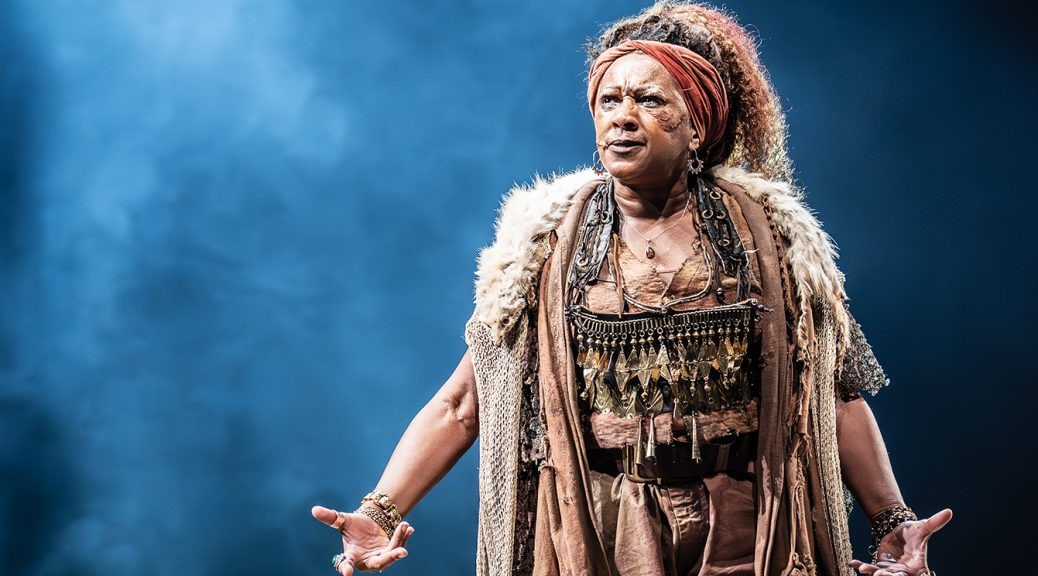After taking up the toughest role in theatre this spring, Indhu Rubasingham’s first show as artistic director of the National Theatre is a production under pressure. There’s a lot of thought behind it – choosing a Greek tragedy is a smart nod to the National’s past and perfect for the Olivier Theatre. Presenting a version – a “new play” – is important, too. There’s much to praise but it’s a shame that, although there are triumphant moments, Bacchae is not a triumph.
From the start, the show looks great, with fantastic puppetry representing a wounded horse. The set and costume design from Robert Jones aid Rubasingham’s clear direction and make the most of the venue. Oliver Fenwick’s lighting is ambitious and, more than once, breathtaking. The fight scenes are great. The music and sound design (DJ Walde and Ben and Max Ringham, respectively) distinctive and atmospheric. Rubasingham is clearly loving her new playground and uses it expertly – who doesn’t love a revolve?
Bacchae is also well acted. There are strong performances from James McArdle and Sharon Small as the doomed Theban royals, showing the script’s savagery and humour. The star of the show is Clare Perkins, who plays Vida, Dionysos’ adopted mother, with ferocious energy and violence while also showing the affection the character has for the man she raised. Perkins is ably supporting by the titular troop who, despite their number, work hard to bring out distinct characters. As the half-God himself, Ukweli Roach brings a lot of bling but runs into problems from the script.
As a first play for Nima Taleghani – and the first time a debut play has been performed at the Olivier – the text impresses but is full of snags. The very different kind of Greek chorus is a strong concept, but the execution is clumsy. Other ideas engage… but don’t quite make sense. Take the play’s exploration of freedom: Dionysian liberty comes at a price, which the Greeks knew, and the play can’t ignore, but Taleghani can’t quite bring himself to warn us about it. His Dionysos is too much of a hero, which dilutes a sense of danger. And there’s the status of the god and his followers – described as immigrants, refugees and terrorists. All very topical, but Dionysos isn’t powerless, or poor… and he comes from Thebes.
As for the Taleghani’s language, that’s a success, although using colloquialism and even rap isn’t particularly new. The play is funny – a nice surprise – yet, oddly, the humour doesn’t work when characters try to make jokes. There’s too much profanity in the sense that it becomes repetitive (“bro” and “fam” are also overused). As Dionysos is the god of theatre, reflections on storytelling are suitably smart, culminating in a finale from Vida that it’s hard not to hear as a statement for the beginning of Rubasingham’s tenure. It’s a strong moment, full of passion and commitment. But how provoking it can be is a problem. It shows one reason why Rubasingham’s job is so hard. Challenging the status quo from the most prestigious stage in the country falls flat. When you’re on it – you are the establishment.
Until 1 November 2025
Photo by Marc Brenner

